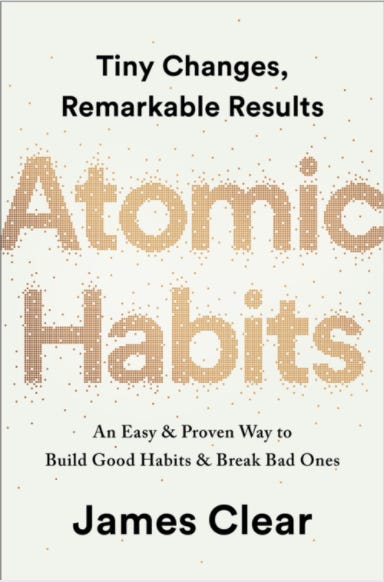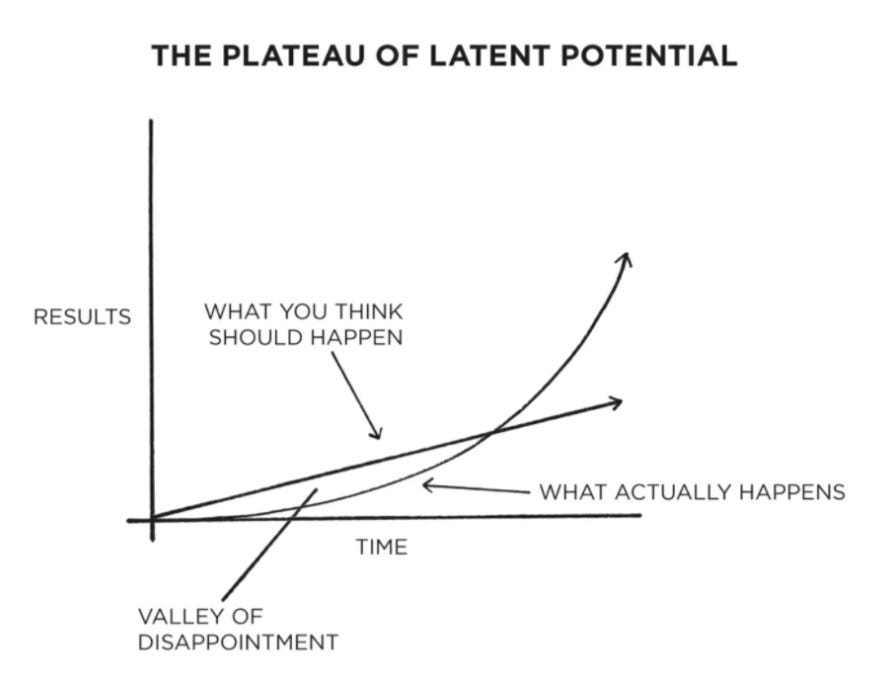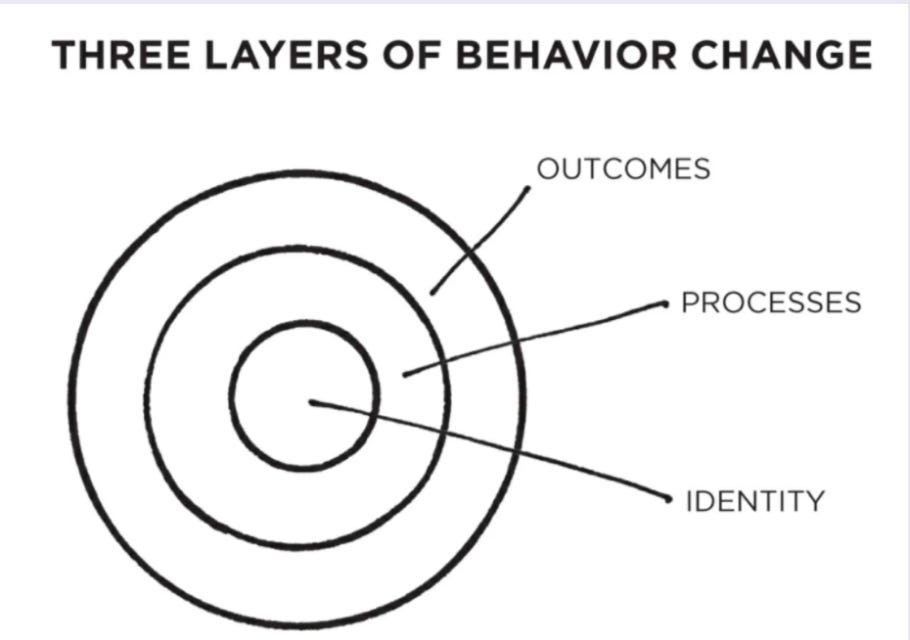Atomic Habits - book highlights
Enjoy a small summary & some highlights of my favourite points from the book
I absolutely enjoyed reading this book.

James Clear (the writer of Atomic Habits) has a great style of writing which keeps you engaged and interested from cover to cover. He inspires change and motivates you to successfully incorporate habits into your daily life.
In the past I struggled with making new habits stick. I can sense a change in the way I start my habits from now on.
Below are some of my favourite points from the book.
I absolutely recommend buying it for a good read!
The book circulates around the following main points:
1- Habits are a compound interest of self-improvement.
2- Setting goals versus setting systems. The book discusses that if you want to achieve better results, then focus on setting systems instead of goals.
3- Having an idea of the person you wish to become is the most effective way to change your habits.
4- There are 4 laws to follow for behaviour change: (1) Make it obvious. (2) Make it attractive. (3) Make it easy. (4) Make it satisfying.
5- The cardinal rule of behaviour change: What is rewarded is repeated. What is punished is avoided.
A habits is a routine or behaviour that is performed regularly -
and, in many cases, automatically.
With the same habits, you’ll end up with the same results.
But with better habits, anything is possible.
True behaviour change is identity change.
You might start a habit because of motivation,
but the only reason you’ll stick with one is that it becomes part of your identity.
Your outcomes are a lagging measure of your habits.
Your net worth is a lagging measure of your financial habits.
Your weight is a lagging measure of your eating habits.
Your knowledge is a lagging measure of your learning habits.
Your clutter is a lagging measure of your cleaning habits.
You get what you repeat.
Goals are about the results you want to achieve.
Systems are about the processes that lead to those results.
A goal-oriented mind-set can create a “yo-yo” effect.
When all of your hard work is focused on a particular goal,
what is left to push you forward after you achieve it?
This is why many people find themselves reverting to their old habits after accomplishing a goal.
If you find yourself struggling to build a good habit or break a bad one, it is not because you have lost your ability to improve. It is often because you have not yet crossed the “Plateau of Latent Potential.”
When you finally break through the Plateau of Latent Potential, people will call it an overnight success

It’s hard to change your habits if you never change the
underlying beliefs that led to your past behaviour.
You have a new goal and a new plan, but you haven’t changed who you are.
“Are you becoming the type of person you want to become?”
The first step is not what or how, but who.
You need to know who you want to be.
As a general rule, the closer we are to someone,
the more likely we are to imitate some of their habits.
We imitate the habits of three groups in particular:
The close.
The many.
The powerful.
There are three layers of behaviour change:
A change in your outcomes
A change in your processes
A change in your identity

You often decide what to do next based on what you have just finished doing.
Create a separate space for work, study,
exercise, entertainment, and cooking.
One space, one use.
You can’t repeat the same things blindly and expect to become exceptional.
When your dreams are vague, it’s easy to rationalise little exceptions all day long and never get around to the specific things you need to do to succeed.
When the moment of action occurs, there is no need to make a decision.
Simply follow your predetermined plan.
The simple way to apply this strategy to your habits is to fill out this sentence:
I will [BEHAVIOUR] at [TIME] in [LOCATION]



